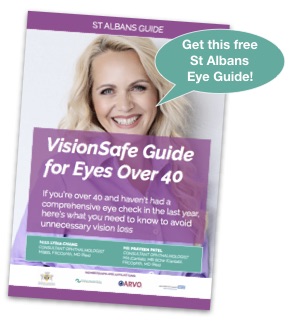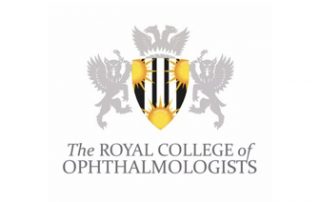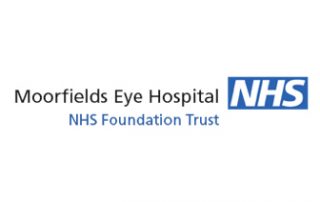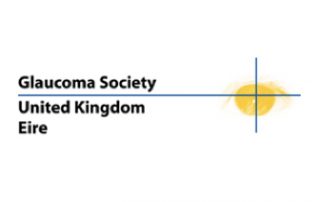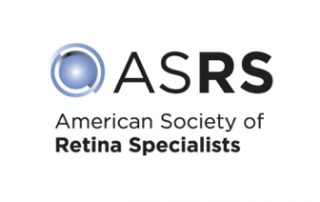Are you over 40 and haven’t had a comprehensive eye check done in the last year? A VisionSafe Eye Check can detect signs of diabetic retinopathy so you can get treatment
Diabetic retinopathy
Diabetes can affect the retina (the light-detecting layer which lines the back of the eye). Diabetes can cause changes in the tiny retinal blood vessels at the back of the eye. This is called diabetic retinopathy. Severe forms of diabetic retinopathy can be dangerous as the condition can be asymptomatic before leading to vision loss or blindness. Early detection of diabetic retinopathy can help prevent vision loss.
What causes diabetic retinopathy?
You are at higher risk of diabetic retinopathy if you have
- had diabetes for a long-period of time
- poor blood glucose control
- diabetic kidney damage (nephropathy)
- high blood pressure
- raised cholesterol levels in the blood
At a Glance
TREATMENT OPTIONS
YOUR SPECIALIST
How do you know you have diabetic retinopathy?
Usually, there are no symptoms.
Often, you are referred to an eye doctor from a diabetic retinopathy screening appointment or during a routine sight test during which your optometrist identifies changes in the retina which look suspicious of diabetic retinopathy.
Sometimes, you are referred to an eye doctor during a routine sight test during which your optometrist identifies changes in the retina which look suspicious of diabetic retinopathy.
Uncommonly (because symptoms only really become apparent in the advanced stages of the disease), you notice visual impairment (blurred vision) in one eye.
Our Patients Say…

“Extremely personable and reassuring. Knowledgeable. Explained options.Successful treatment so far.”

“Most attentive and sympathetic to a patient as well as explaining carefully any procedures.”

“Brilliant! Highly recommend.”

“Very professional yet personal and friendly. Calm & reassuring environment and personal at all levels.”

“Dr Patel explained everything clearly and carefully. No feeling of rush or push to have more procedures. Very friendly & charming reception throughout the clinic.”

“Thank you to Dr P for recommending me. I travelled from Kent and it was an extremely thorough consultation.”

“Everything well explained – great care & understanding. Would thoroughly recommend.”

“I was dealt with very professionally with great care to detail and treated with great kindness. Thank you.”

“I am impressed! You are very thorough.”

“Fuss-free and efficient. Friendly and reassuring.”

“This is an extremely well-run clinic and the staff are kind, understanding and efficient.”

“Very thorough examination & informative discussion.”
Book your consultation for diabetic retinopathy in St Albans
If you suspect you have diabetic retinopathy, book an eye consultation with us that includes:
- Clinical History
- Vision measurements
- Eye examination (sometimes dilated)
- Retinal imaging tests (colour fundus photography and optical coherence tomography imaging)
Treatment options will depend on whether you have diabetic retinopathy and the severity of your diabetic retinopathy. Your consultant will recommend the best management plan to you depending on the findings. If treatment is recommended, the options might include:
- Medical treatments
- Laser treatments
- Injection treatments
If the changes found do not require treatment, your consultant may just recommend monitoring with an emphasis on improving control of blood sugar, blood pressure and blood cholesterol levels.
Contact us to book your consultation in St Albans.
Latest news from your eye doctor in St Albans
We regularly share new videos and blog posts for our St Albans patients about common eye questions and concerns. You can subscribe at the bottom of this page to receive the latest updates.
Vision loss after 40: A VisionSafe Eye Check might catch signs of AMD, glaucoma, macular or retinal conditions.
Vision loss after the age of 40 is common, and there are several reasons this happens. One of the most prevalent reasons is an age-related change in our focusing which means we are not able to read small print easily without glasses (also known as presbyopia). However, there are more serious eye conditions which can lead to irreversible vision loss if not detected at an early stage.
What is macular degeneration?
AMD is a condition which affects the retina, the light-sensitive membrane at the back of the eye. As we get older, we develop an accumulation of waste material underneath the retina. This accumulation can affect the function of the light-sensitive cells.
What is glaucoma treatment and how does glaucoma treatment work?
There are different types of glaucoma treatments. The mainstay of glaucoma treatments is to reduce intraocular (eye) pressure to slow down or stop the disease from worsening.
Memberships and affiliations
Our Consultant Ophthalmologists love to stay on top of the latest in eye treatment options for patients through regular industry meetings, journals and research.
Request a Call Back
Whether you’d like to book a VisionSafe Eye Check, or discover your eye treatment options, give us a call on: 01727 227 013 or request a call back below:


